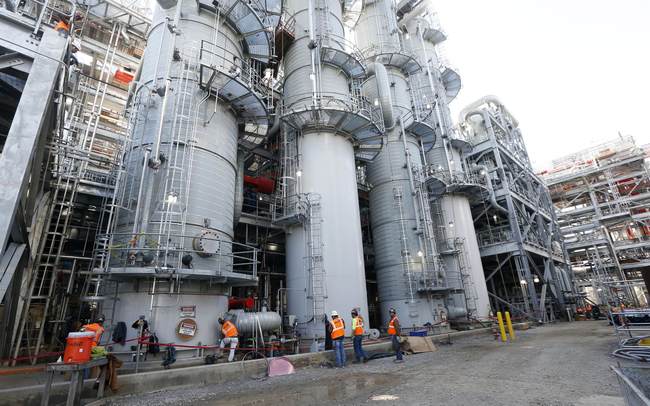Share this @internewscast.com

It seems Louisiana is on the right path. Recent legislative developments indicate that the state is prioritizing taxpayers over carbon capture companies in the debate over the controversial Carbon Capture and Storage (CCS) programs.
With foresight into the carbon capture incentives included in the reconciliation bill, enacted on July 4, Louisiana lawmakers decided to champion fiscal responsibility and defend state taxpayers from companies pursuing billions in unwarranted, costly subsidies.
Louisiana reinforced these efforts by enacting new laws to safeguard landowners against the misuse of eminent domain by CCS pipeline developers. One such law mandates that companies must demonstrate a public benefit in any land access disputes. This is a substantial requirement since CCS projects typically favor private interests over public needs.
Sadly, the reconciliation bill overlooks the potential threats CCS projects pose to property rights and taxpayers’ finances. Rather than terminating 45Q—the excessively generous tax credit for carbon capture—Congress has broadened it. Initially estimated to cost over $30 billion in the next decade, the new expansion adds an additional $14 billion. Some independent analyses estimate the ultimate cost could reach as high as $800 billion. This is far from fiscal prudence; it portrays a significant taxpayer burden for an industry yet to prove it can thrive without support.
The industry’s performance has been poor. Research on 13 major CCS projects found that 10 either failed or did not meet expectations. The power sector’s CCS efforts show a 90 percent failure rate. The Institute for Energy Economics and Financial Analysis states, “no single CCS project has ever achieved its target CO2 capture rate.” Despite this, taxpayers are being asked to continue paying.
Simultaneously, the 45Q program operates without any substantial oversight. Companies provide their own emissions reduction data without EPA verification and there is no limit on subsidies. With no audits or accountability measures, billions in tax credits are being distributed based on unsubstantiated reports.
And it’s not just money at risk. Public safety is on the line. In Mississippi, a CO2 pipeline rupture sent dozens to the hospital, leaving some with permanent disabilities. In Illinois, repeated leaks from CCS wells have raised concerns about groundwater contamination. In Louisiana, a pipeline released more than 100,000 gallons of dangerous gas—residents only learned about it through Facebook.
Adding insult to injury, CCS developers are claiming “common carrier” status to justify seizing private land for pipelines and storage—using eminent domain to take land over owners’ objections. These takings enrich private developers, not the public. That’s not just bad policy. It’s a betrayal of taxpayer trust.
The new law also increases the 45Q credit to $180 per ton for all uses, including captured carbon used for enhanced oil recovery (EOR), a technique the oil industry has used for decades to squeeze more oil from aging fields. EOR remains the only commercially viable use of captured CO2, and 45Q has long functioned as a backdoor subsidy for oil and gas. A recent report found that most CCS projects are backed by the oil, gas, and ethanol industries. Companies that used to fund EOR on their own, as part of normal oil and gas operations, get the added bonus of taxpayer support—talk about “windfall profits.”
Under the reconciliation bill, CCS and fossil fuel companies can exploit tax-shielding ownership structures and deduct intangible drilling costs when calculating their corporate alternative minimum tax.
These handouts don’t create jobs for Louisiana or strengthen American energy independence. They enrich Wall Street at taxpayers’ expense while propping up a technology that doesn’t deliver—one that even its backers quietly admit is a bust.
Fortunately, Louisiana lawmakers have stepped up. The state’s new laws will help protect property owners, communities, and taxpayers alike. Now, it is time for federal lawmakers to finish the job and end wasteful CCS subsidies for good. The oil and gas industry doesn’t need help, and outside of EOR, CCS has no economic or environmental justification.
The choice is clear: stand with Louisiana families and for fiscal responsibility—or keep handing out corporate welfare for a failed technology. Voters will remember where lawmakers stand.
















